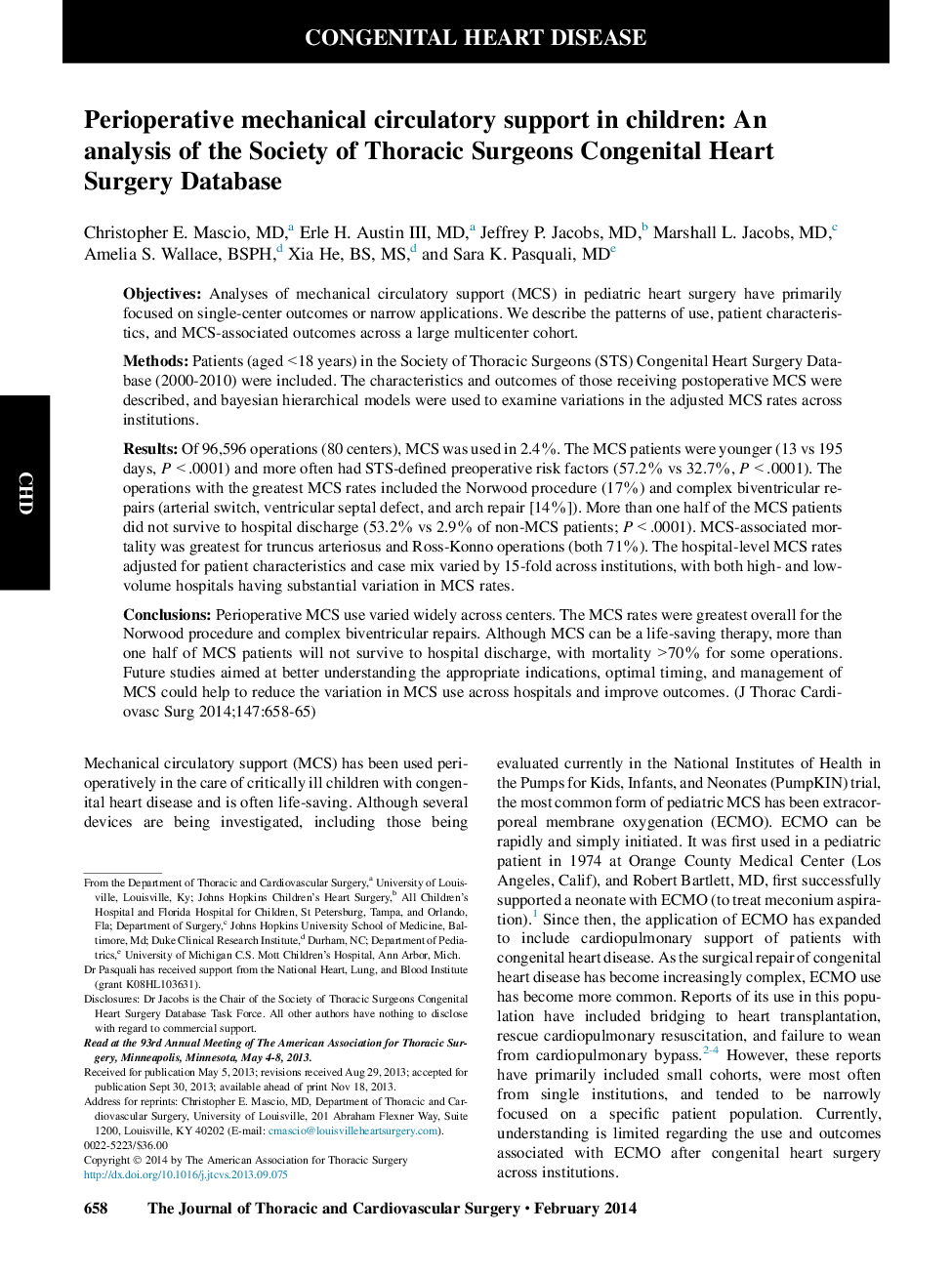| کد مقاله | کد نشریه | سال انتشار | مقاله انگلیسی | نسخه تمام متن |
|---|---|---|---|---|
| 2980215 | 1578614 | 2014 | 8 صفحه PDF | دانلود رایگان |
ObjectivesAnalyses of mechanical circulatory support (MCS) in pediatric heart surgery have primarily focused on single-center outcomes or narrow applications. We describe the patterns of use, patient characteristics, and MCS-associated outcomes across a large multicenter cohort.MethodsPatients (aged <18 years) in the Society of Thoracic Surgeons (STS) Congenital Heart Surgery Database (2000-2010) were included. The characteristics and outcomes of those receiving postoperative MCS were described, and bayesian hierarchical models were used to examine variations in the adjusted MCS rates across institutions.ResultsOf 96,596 operations (80 centers), MCS was used in 2.4%. The MCS patients were younger (13 vs 195 days, P < .0001) and more often had STS-defined preoperative risk factors (57.2% vs 32.7%, P < .0001). The operations with the greatest MCS rates included the Norwood procedure (17%) and complex biventricular repairs (arterial switch, ventricular septal defect, and arch repair [14%]). More than one half of the MCS patients did not survive to hospital discharge (53.2% vs 2.9% of non-MCS patients; P < .0001). MCS-associated mortality was greatest for truncus arteriosus and Ross-Konno operations (both 71%). The hospital-level MCS rates adjusted for patient characteristics and case mix varied by 15-fold across institutions, with both high- and low-volume hospitals having substantial variation in MCS rates.ConclusionsPerioperative MCS use varied widely across centers. The MCS rates were greatest overall for the Norwood procedure and complex biventricular repairs. Although MCS can be a life-saving therapy, more than one half of MCS patients will not survive to hospital discharge, with mortality >70% for some operations. Future studies aimed at better understanding the appropriate indications, optimal timing, and management of MCS could help to reduce the variation in MCS use across hospitals and improve outcomes.
Journal: The Journal of Thoracic and Cardiovascular Surgery - Volume 147, Issue 2, February 2014, Pages 658–665
